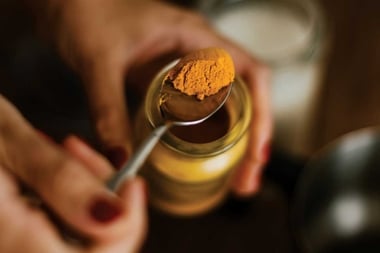Racing With Honor

Some people run to stay in shape. Others run to relieve stress. Los Angeles runner Jonathan Sandoval has another reason; he runs to help and inspire others—including his son. “[Running] helps me shine a light on different organizations that are doing such good work for families like ours and for families that may have it worse,” he says. Sandoval’s five-year-old son Robinson was born with neurofibromatosis type 1 (NF1), a genetic disorder that causes tumors to grow on nerves throughout the body. This condition, which affects about 1 in 3,000 people, can lead to learning challenges and other health problems. It has no cure. To raise money for the Children's Tumor Foundation and help raise awareness about NF1, Sandoval ran three major marathons in 2022—LA, Chicago, and New York. This fall’s Chicago Marathon will be his 30th full marathon.
Coping by moving
As a child and young adult, Sandoval, now 41, hated running. But he says when he found out his mother had stage 4 kidney cancer, running saved his life.
Some people cope with grief “by doing things that aren’t beneficial,” he says. But he chose a different path, one traced by the sound of his running shoes striking the pavement.
“I’d go out on a long run and be with my thoughts,” Sandoval says. While he did talk to a therapist, he used running to “keep [his] mental health in line.”
This, he says, allowed him to come home and be the support he needed to be for his mother, wife, and sister. At the time, his son and daughter had not been born.
When Sandoval and his wife found out about their son’s condition, he had already been racing to raise money for a hospice organization that took great care of his mother during her last year. She passed away in 2013.
Strong running
A solid foundation of nutrition begins with whole foods, but certain supplements can provide extra support for your runs:
- Electrolyte powders or tablets, added to water, replace sodium, potassium, calcium, and magnesium lost in sweat.
- Protein powders can help muscles recover after a hard run. Consume with carbohydrates.
- Green powders contain vitamins and minerals among other nutritious elements that give our bodies a boost of health benefits.
- Pre-workout powders containing amino acids (including beta-alanine and citrulline), beta-alanine, creatine, protein, and sometimes caffeine provide a boost before your run.
Active fundraising
Now Sandoval races mainly with the Children’s Tumor Foundation NF Endurance Team. This team provides participants with a chance to run, bike, or swim in endurance events to raise awareness and funds to research a cure for NF1 and other types of neurofibromatosis.
It is one of many non-profit organizations that support specific causes through physical activity events. While many focus on medical conditions, others raise money for the environment, veterans, or even their local library. Events range from 5K (3-mile) runs/walks to full marathons or 100-mile bike rides.
Major events also set aside spots for charity racers, with a big impact. Since 2002, runners in the Chicago Marathon have raised more than $292 million for local, national, and global causes.
Most charities offer training plans, travel advice, and pre-event meals to racers. Sandoval says this kind of support “eased the tension of travel and the moments leading up to the race.”
Set small fundraising goals
Many charity events require runners to raise a minimum amount of money. To make it easier, break this down into smaller monthly and weekly goals. Leverage your network of friends and family—and social media—to help you hit your targets.
Network of support
None of Sandoval’s family or close friends have his passion for running, so he trains mostly on his own, or occasionally with local running groups. Racing for charity has allowed him to connect and keep in touch with other families who have kids with NF.
Sandoval also stays in contact with a woman who organizes charity running for the Children’s Tumor Foundation, bouncing ideas off her and updating her on races happening on the west coast.
Over the years, “[running] has built a nice little network of like-minded people for me,” he says.
Running has also strengthened his connection with his wife, daughter, and son. “Our whole family is involved,” he says. “Nobody else likes to run, but they definitely support me.”
Last year his family made blue and green bracelets—the colors of the Children’s Tumor Foundation—to send to people who donated money.
His family, through his racing, firmly believes that “helping others is very important in our lives,” Sandoval says. “And that without the help of others, we wouldn't be where we're at now as a family.”
Neurofibromatosis support
Organizations that provide support for people with neurofibromatosis and their families:
- Children’s Tumor Foundation, <ctf.org>, 800-323-7938
- Neurofibromatosis Network, <nfnetwork.org>, 800-942-6825
- Neurofibromatosis Northeast, <nfnortheast.org>, 781-272-9936




